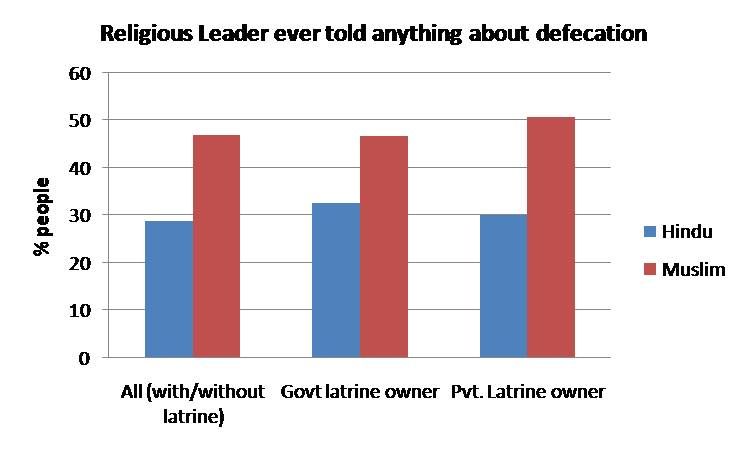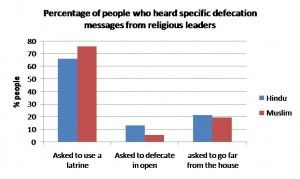Do religious leaders talk about defecation in India?
— Blog Post — 1 min read
The SQUAT Survey teams randomly selected and interviewed around 3,200 rural households in over 300 villages in Bihar, Haryana, Madhya Pradesh, Rajasthan, and Uttar Pradesh.
Figure 1
We asked people if their religious leaders have ever told them where they should defecate or where they should not. Among all respondents, both those who have a working latrine or those who do not, 47% of Muslim respondents and only 29% of Hindus said that their religious leaders have told them something about where they should or should not defecate. This trend does not change if we look at the subset of people who own government latrines or even for those who built their latrine spending their personal money.
Figure 2
Another interesting finding (Figure 2) from the SQUAT data comes from when we asked people what specific messages on defecation they had heard from their religious leaders, if they had heard one at all. More Muslim respondents said that their religious leaders ask them to use a latrine than Hindu respondents. We also found the opposite: more Hindu respondents than Muslim respondents said that their religious leaders ask them to defecate in open. There was not much difference between Hindu and Muslim respondents in terms of religious leaders asking them to go far from their house for defecation.
Researches in the past have shown difference in latrine access between hindus and muslims. And if we account the negative externality of open defecation on India’s children it is worth exploring as to why the difference exists. These may be preliminary finding but they certainly point towards a direction where much more can be explored.

